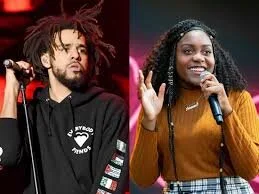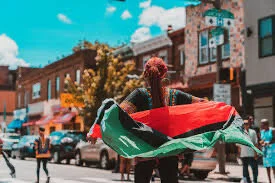Loss of NYC’s 50th Annual Pride March Hinders Visibility

Source: NY LGBT Sites
Mayor Bill De Blasio announced on April 20 that all permits for June events in New York City would be nullified due to COVID-19 concerns. This decision has caused the first ever cancellation of the city’s annual Pride March since its inception in 1970, hitting during the event’s pivotal 50th anniversary. While some cities are looking to postpone their festivities for a later date in 2020, the co-chair of NYC Pride, Maryanne Roberto Fine, stated that “large scale events such as [the march] are unlikely to happen in the near future” and that they will need to “reimagine NYC Pride events” (via Forbes).
While there is talk about attempting to digitize NYC Pride and host the celebrations online, there is a newfound uncertainty in regards to the future of the LGBTQIA+ community’s public voice. New York City’s Pride March is the largest in the country, consistently drawing in over two million people every year. Since its conception, the event has encapsulated the demand for acceptance and liberty of expression for the LGBTQIA+ community. These demands become significantly less visible in an online space. When the streets of a city are flooded by millions, it is hard to turn a blind eye on the festivities. In the digital world, it simply takes one click.

Source: NY Curbed
For a community that has been systematically erased from history and media, visibility is vital for progress. The NYC Pride March is a symbol of the LGBTQIA+ community’s call to freely be loud and proud; the move to online spaces greatly limits their volume, and thus fosters concern about how this will limit LGBTQIA+ awareness. To combat this, there has been a push to remain visible in the online hemisphere. Hashtags such as #LGBTQuarantine have risen to top trending spots on Twitter because of community members posting selfies decorated with unapologetic rainbows and smiles. Their faces serve as a reminder that in a time of isolation and fear, it is more important than ever to be vocal, open minded, and most importantly, proud.
Report: Nicolette Schneiderman
While people have shown concern for the rapper, others have taken the opportunity to make jokes about the incident. Within the last couple of months, the topic of how Black women are marginalized in society has become more prevalent.
After witnessing the backlash from Simone Biles Vogue cover I had to sit aside and ponder: Why is it so challenging for some photographers to capture the beauty of black skin/people? Our undertones, our glow, even the texture of our hair. So, like always I went looking for methods to best capture dark skin.
Black women die at a rate three times higher than white women when giving birth. The death of Sha-Asia Washington has shown the racial disparities Black women face in childbirth.
Among the many other issues surrounding diversity and inclusion within the fashion industry, it's important to acknowledge the failings of the system that produces fashion industry practitioners; the university.
Going back to “normal” is a problem when society is on the brink of a revolution. Social media has made it easier for people to forget about the movements and protests going on outside their front door.
J.Cole recently dropped a surprise song called the Snow on tha Bluff on June 16th, addressing the female activist, Noname and her recent tweet (that has since been deleted) calling out conscious rappers.This conversation started with Noname addressing rappers who make music on social injustice but are silent outside of the music. But this started a bigger conversation.
Being black in America and the world at large is has many benefits but they certainly come with a cost.
Although it is nice to see brands transform their logos to incorporate the ten color rainbow of the Pride flag, do these companies actually stand with the LGBTQ+ community?
With the Black Lives Matter movement taking center stages, and June being Pride Month, these two causes have united to bring awareness to an underrepresented community.
“Juneteenth isn’t just a celebration… especially in times like this, it is a reminder of how far we’ve come, but also how much work we have to do to become truly free.” - @juliaforboston (twitter)
Typically June is filled with pride parades, drag shows, events at gay bars and lots of rainbows. Due to the pandemic things are different this year but we can still unite virtually to celebrate pride together.
Spotify has announced its Unlike Any Other global campaign for Pride Month 2020, spotlighting LGBTQIA+ creators for fans all around the world.
From Killer Mike's "Trigger Warning" to "The Gospel According to Andre," here you'll find a list of films that represent and dissect the issues impacting the black community and fashion community alike.
The concept of “racial ambiguity” disconnects people from their identity and culture. Celebrities who capitalise on this only serve to worsen the problem.
























At the rise of Covid-19 many of us first questioned the timeline of fashion week and would we see the regular calendar continue - the question weighed over many of us for months! It was refreshing to see design houses and designers across the globe take advantage of the uncertainty and plow into production mode - thus my interest in Jerri Reid New York - The Black Designer based in Brooklyn New York wow’d instagram with his latest collection paying homage to the Black Is King film which debuted earlier this year in July. I was taken aback at quick of a turn round the young designer produced and released his well crafted designs reflecting some of the films most memorable moments.